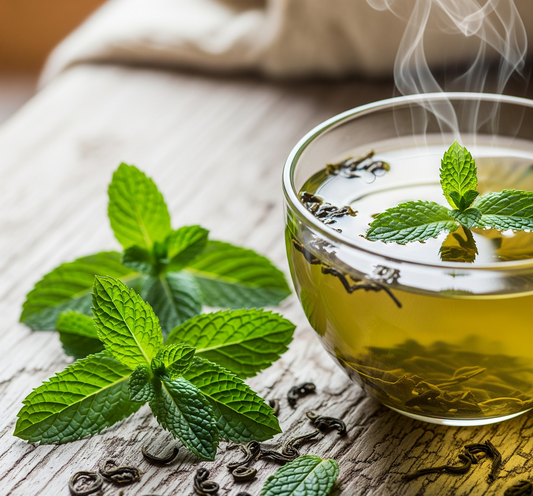Borosilicate glass is a highly durable and thermally resistant material, making it an ideal choice for teaware. Its unique composition allows it to withstand boiling water without cracking and ensures that it does not react with acidic substances, preserving the tea's flavor. Lightweight and elegant, borosilicate glass is also eco-friendly and recyclable. Additionally, it is microwave safe and easy to clean, either in the dishwasher or by hand. Overall, borosilicate glass enhances the tea-drinking experience with its combination of safety, durability, and aesthetic appeal.
A remarkable new material in the world of teas, borosilicate glass has quickly gained popularity worldwide. This unique type of glass offers numerous benefits that make it a preferred choice for tea enthusiasts and everyday tea drinkers alike. In this article, we will explore the multiple advantages of using teaware made using borosilicate glass. We will also address some common questions regarding its safety, durability, and maintenance.
What is Borosilicate Glass?

Borosilicate glass is a specialized type of glass that contains silica and boron trioxide as its main glass-forming constituents. This material’s unique composition gives it exceptional properties, including a low coefficient of thermal expansion, making it highly resistant to thermal shock. Borosilicate glass can withstand temperature differentials of about 165°C without fracturing. It is also known for its high chemical durability, resistance to scratches and chips, and clarity.
These properties make borosilicate glass a preferred choice for various applications, such as laboratory equipment, cookware, lighting fixtures, and as we will discuss in more detail, teaware. This glass is also known under different names such as Pyrex and Duran and is valued for its strength, durability, and versatility.
Benefits of Borosilicate Glass Teaware
Most modern teaware is made using borosilicate glass and for good reasons. Here we have shortlisted 10 of the greatest benefits of teaware made using borosilicate glass:
- Thermal Resistance
One of the standout features of borosilicate glass is its ability to manage extreme temperatures. This makes it perfect for brewing tea, as it can endure boiling water without cracking or breaking. In a study by The Ceramic Society, it was found that compared to soda lime cookware, borosilicate glassware was more resilient and did not shatter until removed from a 500°F oven. So tea drinkers can confidently pour hot water over their tea leaves without worrying about damaging their teapots or cups.
- Chemical Resistance
Borosilicate glass is highly resistant to chemical corrosion. This means that it does not react with acidic or alkaline substances, ensuring that the flavor of your tea remains pure and unaltered. Unlike certain materials, borosilicate glass won’t leach harmful chemicals into your beverage, making it a safe choice for health-conscious individuals.
- Durability
When asking, "How strong is borosilicate glass?" it’s essential to note that it is significantly more durable than regular glass. Its resistance to thermal shock and chemical corrosion means that borosilicate glass teawares are less likely to scratch, chip, or break. Tea infuser bottles made using this material also tend to be dishwasher safe. This durability makes them a long-lasting investment for tea lovers.

- Lightweight and Elegant
Borosilicate glass teawares are not only functional but also aesthetically pleasing. They are lightweight, making them easy to handle and pour. The clarity of the glass also allows users to witness the organic tea leaves unfurl as they release beautiful and vibrant colors of their favorite organic loose-leaf tea leaves, enhancing the overall tea-drinking experience.
- Eco-Friendly Choice
Using borosilicate glass teaware is an environmentally friendly option. Unlike plastic, borosilicate glass is recyclable, reducing the amount of waste generated from single-use products. By choosing borosilicate glass, you contribute to a more sustainable lifestyle. According to BOROSIL, recycling borosilicate glass has minimal impact on the environment, using less energy than producing new glass. It also decreases landfill and ocean waste, helping to protect natural habitats and marine life.
- Stylish Presentation
Borosilicate glass teawares often come in beautiful designs that enhance the presentation of your tea. Whether you are hosting a tea party or enjoying a quiet moment alone, the elegance of borosilicate glass adds a touch of sophistication to any setting. Our Cold Brew Infuser mug for example is a stylish transparent vessel with a built-in strainer that works perfectly in filtering out the loose leave tea leaves as you drink it.
Additionally, borosilicate glass is not limited to just teawares. It is also used in a variety of kitchen items, including borosilicate glass bottles, measuring cups, storage containers, and even cookware. This versatility means that you can enjoy the benefits of borosilicate glass throughout your kitchen.
Is Borosilicate Glass Microwave Safe?
Short answer - Absolutely! Borosilicate glass is microwave-safe, making it a fantastic choice for reheating your favorite beverages or meals. Unlike some other materials that can warp or crack in the microwave, borosilicate glass can handle the heat without any issues.
Just make sure to avoid sudden temperature changes—like taking it straight from the fridge to the microwave. So, feel free to pop your borosilicate glass teaware in the microwave for a quick warm-up and enjoy your tea or soup without any worries!
How to Clean Borosilicate Glass?
Cleaning borosilicate glass is a breeze! Here are a few simple steps to keep your teaware sparkling clean:
- Dishwasher Safe: Most items made from borosilicate glass are dishwasher safe, so you can just place them on the top rack and let the machine do the work.
- Hand Washing: If you’re someone who prefers to wash by hand, simply use warm soapy water and a soft sponge. Remember to avoid abrasive cleaners or metal scouring pads, as they can scratch the surface and leave marks.
- Stubborn Stains: For tough stains or residue, you can create a paste with baking soda and water. Apply it to the stained area, let it sit for a few minutes, then gently scrub it with a sponge.
- Rinse and Dry: After cleaning, rinse thoroughly with warm water to remove any soap residue, and then dry with a soft cloth or place it outside to let the sun and air dry it.
The benefits of using borosilicate glass teawares are numerous and compelling. From their thermal resistance and durability to their elegant appearance and ease of cleaning, borosilicate glass stands out as a superior choice for tea enthusiasts.
How can you tell if your Glass is Borosilicate?
Most glass teaware and kitchenware is made from either soda-lime glass or borosilicate glass. Soda-lime glass is composed of silica sand, sodium oxide, and calcium oxide, allowing it to withstand high temperatures, albeit with lower thermal resistance compared to borosilicate glass.

To identify the type of glass, you can pick up the item and visually inspect the edge of the item for a bluish-green hue. If you see a discoloration it’s most likely soda-lime glass. And if this tint is absent, it is likely borosilicate glass. It should be noted, however, that this method is not very reliable.
For a more accurate identification, you need to consult a scientist who can perform tests involving extreme temperatures or optical analysis. Alternatively, checking with the manufacturer or the packaging is a straightforward option, as most brands disclose the type of glass used in their products, either on the item itself or through their website or customer service.
By investing in borosilicate glass teawares, you not only enhance your tea-drinking experience but also make a responsible choice for your health and the environment. In summary, borosilicate glass is not just a material; it is a lifestyle choice that promotes quality, safety, and sustainability in your everyday life. Embrace the benefits of borosilicate glass teaware and elevate your tea-making and drinking experience today!




